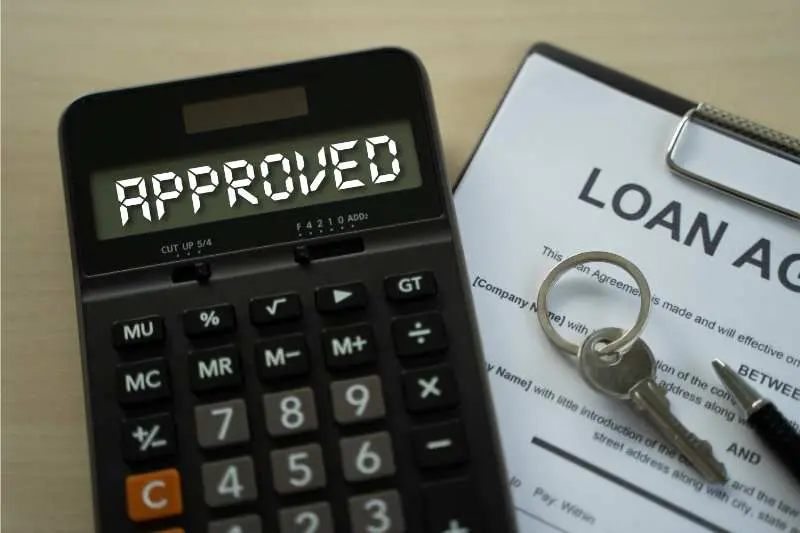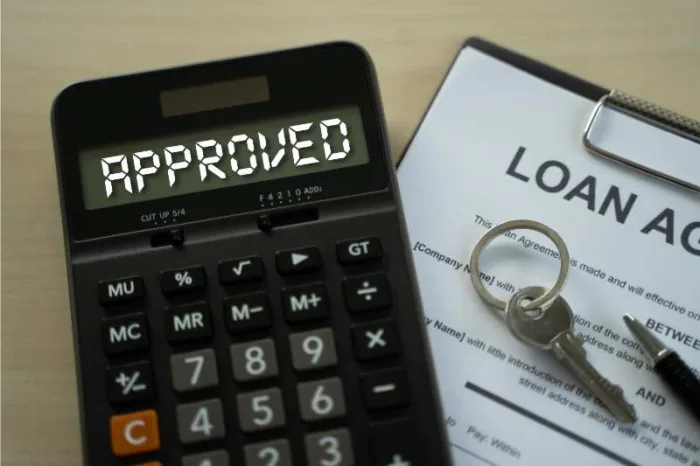Key takeaways
- A real estate loan is the payment plan you agree to with a financial institution when purchasing a property.
- The most common loan is a conventional mortgage.
- Commercial loans tend to be shorter and cover much more expensive properties than non-commercial ones.
- In order to get a real estate loan, you need good credit, a less than 36% debt-to-income ratio, and a documented work history.

Disclaimer: This content is for informational purposes only, you should not construe any such information as legal, tax, investment, financial, or other advice. Nothing contained on our site constitutes a solicitation, recommendation, endorsement, or offer by ButterflyMX or any third-party service provider. ButterflyMX is not a financial adviser. You should always seek independent legal, financial, taxation, or other advice from a licensed professional.
In order to finance multifamily properties and other types of real estate, you’ll need to familiarize yourself with real estate loans. Loans in real estate come in many forms with varying fine print. For this reason, it’s crucial you know all you can regarding real estate loans.
In this post, we’ll define what real estate loans are. Next, we’ll review why real estate loans are important. After that, we’ll review the requirements for different types of real estate loans.
This post covers:
- What are real estate loans?
- What is the most common real estate loan?
- How do commercial real estate loans work?
- How to get a real estate loan
What are real estate loans?
Real estate loans occur when you borrow money from a financial institution, private lender, or the government in order to purchase a property.
Loans are given based on your creditworthiness and current financial situation. Most importantly, loans come with a contractual payment period that determines the monthly amount that you must pay until your loan is paid off.
Is a real estate loan the same as a mortgage?
Yes, any type of mortgage is considered a real estate loan.
What is real estate owned by a lender called?
Real estate owned by a lender that has not yet sold is called REO (real estate owned).
This usually occurs when a property is foreclosed on because payments cannot be made. Thus, real estate risk should always be determined before finding a real estate loan.
What is a good credit score to buy real estate?
The minimum credit score required for a basic loan — also known as a conventional loan — is 620.
However, a credit score higher than 740 will reward you with a better deal, such as cheaper insurance and a lower interest rate.
If you don’t have a great credit score, you can find a guarantor to sign a real estate guarantee.

What is the average life of a real estate loan?
Most real estate mortgages last around 30 years. This takes into account that the average single-family home mortgage is set to last for 30 years.
What is the most common real estate loan?
The most common loan in real estate is a conventional mortgage. In fact, 53% of mortgages are conventional, so they last 30 years at a set interest rate.
For example, say you purchase a $600,000 multifamily investment property at an interest rate of 4%. You put $10,000 down. Your principal monthly mortgage payments with interest for the next 30 years will be $2,817.
Other types of multifamily and single-family home loans include:
- Bridge loans. Bridge loans, or short-term loans, are when you take out a loan to cover the purchase of a new property before your previous property has sold.
- Portfolio loans. These loans involve working directly with a bank. As a result, they allow you to choose your unique payment structure. These loans typically benefit people with a large portfolio of properties or those who are purchasing multiple properties at once.
- Government-backed loans. These loans can include FHA (Federal Housing Administration) loans for lower-income buyers and VA (U.S. Department of Veterans Affairs) loans for veterans. However, there are no home loans guaranteed by the federal government. So, you still need to make sure you meet basic requirements.
Learn how to invest in multifamily real estate:
How do commercial real estate loans work?
Commercial real estate financing loans work much differently than multifamily or single-family home loans.
Unlike residential loans, there are a large variety of commercial real estate loans available. This is largely because of how much more commercial properties tend to cost on average when compared to other property types. What’s more, commercial loans tend to have a shorter lifespan than conventional loans, lasting on average between five and 20 years.
The three most common types of commercial real estate loans are:
- Fixed-interest commercial mortgages. These mortgages require a business to offer 51% of a property. As a result, the interest rate may be lower than other loans.
- Commercial bridge loans. Similar to multifamily and single-family loans, commercial bridge loans allow investors to purchase their next property before their previous property has officially sold. As a result, they’re very short-term.
- A business line of credit. This is most commonly used to do extensive rehab to a commercial property. It involves receiving a set amount of cash with a high-interest rate. This loan is useful because it’s easier to apply for and finance because you aren’t purchasing a new property.
How to get a real estate loan
While the exact type of loan you’re looking for will vary, there are a number of factors you should pay attention to when seeking to qualify for a loan. All of the tips below are the same no matter the type of real estate loan.
In order to get a loan, you need:
- Good credit
- A credit audit
- A budget-friendly property
- Reduced debt
- Documented work history
- Get pre-approved
1. Good credit
As aforementioned, a credit score higher than 740 will make it much easier for you to invest in real estate. Among other metrics, your credit score highlights your ability to make timely payments and prevent the accrual of debt.
Equally important is the length of your credit. This is why many borrowers find it useful to get a credit card and start paying it off at a young age.
2. A credit audit
Once you’ve determined your credit, you’ll want to order an official credit audit. The audit will highlight the history of your credit and is what most lenders want to see before granting you a loan.
Credit audits can take time. So, consider ordering yours months before selecting a property to purchase.
3. A budget-friendly property
Most financial institutions will pre-qualify you for a maximum value for a property. It’s important to choose a property according to precalculated real estate metrics so that you know you can make your monthly payments.
Remember: A pre-qualification from a lender is not a guarantee of the total loan amount you requested.
4. Reduced debt
You likely cannot work with a financial lender if your debt is 36% more than your annual income. Debt includes payments on other properties, car payments, and credit card debt.
So, knowing when your debt is lower than 36% is key to determining when you’re eligible to buy another property.

5. Documented work history
Lenders will want to speak with your current employer and access your W-2s. Make sure your work history is documented and readily accessible. This can be tricky if you’ve worked multiple jobs within the past few years.
Additionally, if you make money from other investment properties, this income is important to show.
6. Get pre-approved
In order to quicken loans, make sure to get pre-approved. This allows lenders to check your finances, including your credit history, and determine whether you’re a good candidate for a mortgage. Sellers will want to see that you’re pre-approved before spending their valuable time working with you.







